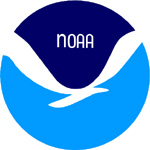| ESTEEM (NICE) | NASA | NIA | CERSER | UNH | ECSU |

| 2013 Climate Change Education Principal Investigators Meeting | ||
October 7, 2013
Arlington, Virginia  The 2013 Climate Change Education Principal Investigators Meeting, sponsored by the National Marine Sanctuary Foundation (NMFS), was held at the Renaissance Arlington Capital View Hotel in Arlington, Virginia on October 7-9, 2013. Under the NASA Innovations in Climate Education (NICE) program, Elizabeth City State University (ECSU) has joined with the University of New Hampshire (UNH) in developing the program: “Engaging Minority University STEM Education Professors in the Science of Climate Change”. This program is designed to empower faculty of education programs at Minority Serving Institutions to better engage their pre-service teachers in teaching and learning about global climate change through the use of NASA Earth observation sets. The 2013 Climate Change Education Principal Investigators Meeting, sponsored by the National Marine Sanctuary Foundation (NMFS), was held at the Renaissance Arlington Capital View Hotel in Arlington, Virginia on October 7-9, 2013. Under the NASA Innovations in Climate Education (NICE) program, Elizabeth City State University (ECSU) has joined with the University of New Hampshire (UNH) in developing the program: “Engaging Minority University STEM Education Professors in the Science of Climate Change”. This program is designed to empower faculty of education programs at Minority Serving Institutions to better engage their pre-service teachers in teaching and learning about global climate change through the use of NASA Earth observation sets. Dr. Darnell Johnson of ECSU and Dr. Steven Hale of UNH serve as Project Coordinators for this NASA NICE project. Three members from the second year cohort of Historical Black Colleges and Universities (HBCU) presented a poster on the 2013 summer workshop. These members were Kaiem Frink, Mathematics-Virginia Union, Sheryl Bradford, Biology and Ervin Howard, Educational Technology-ECSU. |
||
  |
||

